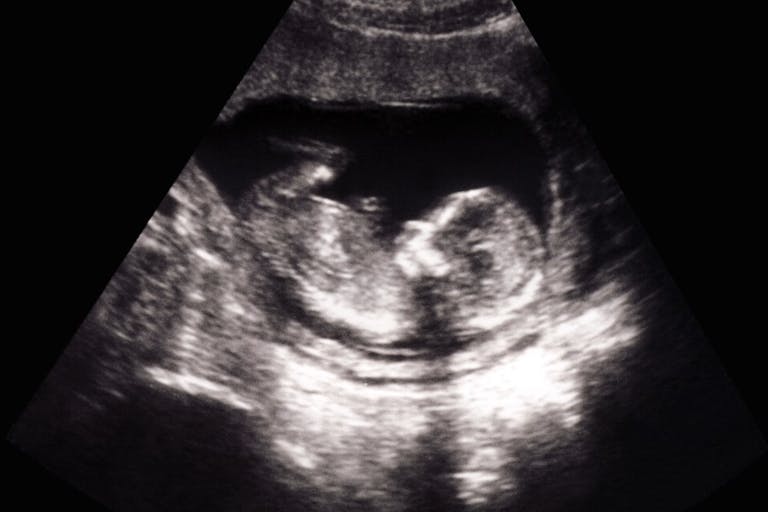
FACT CHECK: Are pro-life laws to blame for arrest of SC woman who delivered baby in a toilet?
Nancy Flanders
·
More abortion restrictions enacted in 2021 than any year since Roe v. Wade
According to a new report from the pro-abortion Guttmacher Institute, more abortion restrictions have been enacted in 2021 than in any other year since Roe v. Wade legalized abortion in the U.S. in 1973. Ninety abortion restrictions have been put in place in 2021, surpassing the previous record of 89 back in 2011.
Polling shows that while most Americans support the idea of keeping abortion legal, they also believe it should be heavily restricted. As Live Action News previously reported:
While the abortion industry has claimed that 7 in 10 Americans support legal abortion (unrestricted and on demand), polling has consistently found that while Americans want abortion to remain legal, they also want it heavily restricted. Almost 70% of people want abortion limited to the first trimester. Common-sense restrictions, like parental consent, waiting periods, and informed consent before undergoing an abortion, also receive widespread support.
Just 7% of Americans support completely unrestricted, taxpayer-funded abortion.
Trigger abortion bans
Oklahoma and Texas each passed a”trigger” law that will ban abortion only in the event that Roe v. Wade, the 1973 Supreme Court case that legalized abortion, is overturned.
Near-total abortion bans
In 2021, Arkansas and Oklahoma each banned abortion, unless a woman’s life is at risk. The Arkansas Unborn Child Protection Act (Senate Bill 6) will allow only abortions deemed necessary to save the mother’s life. Likewise, Oklahoma passed HB 1102, which classifies abortion as “unprofessional conduct” and states that doctors committing abortions that are not considered medically necessary will lose their medical licenses for at least one year.
The truth is that if a woman’s life is directly and immediately threatened by a pregnancy complication, killing her preborn child is not what will save her life. A pregnancy does not have to be ended by abortion, which is the direct and intentional killing of a preborn child. Delivering her child prematurely is a safer and faster option, especially later in pregnancy. Preterm emergency C-sections/preterm deliveries are not abortions; they offer the opportunity for doctors to save both lives.

Six-week abortion restriction
Four states — Idaho, Oklahoma, South Carolina, and Texas — passed laws in 2021 to restrict abortion to the first six weeks of pregnancy before an embryonic heartbeat is detected.
Idaho and South Carolina made exceptions for medical emergencies (though as stated, abortion is never medically necessary) and for babies conceived in rape or incest. South Carolina also included an exception in the case of fetal diagnosis. These exceptions send the message that all human embryos with heartbeats are human beings worthy of protection unless they are conceived in tragic circumstances, have a health condition, or their mothers’ lives are at risk.
Oklahoma’s law, as well as the law in Texas, includes no exception for rape or incest. While abortion advocates have called this “cruel,” abortion after rape creates another innocent victim, does nothing to help the mother heal, and does not punish the rapist. In addition, rapists and abusers frequently use abortion to cover up their crimes.
Gestational age restrictions
Montana enacted a law that restricts abortion to the first 20 weeks of pregnancy, ensuring that children who are old enough to survive outside the womb are not killed in abortions. The Montana Pain-Capable Unborn Child Protection Act states that preborn children can feel pain at 20 weeks, though research has shown preborn children likely feel pain far earlier in their development.
Restrictions against discriminatory abortions
Article continues below
Dear Reader,
In 2026, Live Action is heading straight where the battle is fiercest: college campuses.
We have a bold initiative to establish 100 Live Action campus chapters within the next year, and your partnership will make it a success!
Your support today will help train and equip young leaders, bring Live Action’s educational content into academic environments, host on-campus events and debates, and empower students to challenge the pro-abortion status quo with truth and compassion.
Invest in pro-life grassroots outreach and cultural formation with your DOUBLED year-end gift!
South Dakota enacted a law restricting abortion based on a prenatal diagnosis of Down syndrome. Arizona’s Senate Bill 1457 bans abortion in cases of any genetic health condition diagnosed prenatally, including Down syndrome. It amends a previous law that restricted abortions due to the sex or race of the baby. Targeting children for abortion due to any prenatal diagnosis is an act of eugenics.
READ: 5 ways the Biden-Harris administration is impacting the pro-life movement
Restrictions on the abortion pill
Seven states enacted laws restricting the use of the abortion pill in 2021. Most focused on prohibiting abortionists from prescribing the abortion pill without seeing the patient first.
Arizona’s Senate Bill 1457 prohibits abortionists from mailing the abortion pill to women. Likewise, Ohio’s Senate Bill 260 would prohibit abortionists from using telemedicine to dispense the abortion pill to women. Arkansas’ Act 562 requires abortionists to do an in-person exam of the mother, including finding out her blood type, before the abortion pill is dispensed to her as was previously required under FDA rules prior to the COVID-19 pandemic. Oklahoma’s Senate Bill 778 also requires a “qualified physician” to examine a woman in person prior to prescribing the abortion pill. Montana passed a similar law, House Bill 171, which requires women to be given an in-person prescription for the abortion pill and sign a consent form acknowledging that they understand the risks involved with the abortion pill including death.

Three states passed laws concerning abortion pill reversal. Indiana passed a law requiring abortionists to share information about the abortion pill reversal process with women who take the abortion pill. South Dakota passed an amendment to its abortion pill reversal law that requires the stat Department of Health’s website to inform pregnant mothers about the possibility of abortion pill reversal. The amendment also requires that the abortion pill reversal information be provided in the written discharge instructions given to women after they take the first pill. West Virginia’s Second Chance at Life Act requires that women who obtain the abortion pill must be given information about abortion pill reversal. The bill also protects doctors who provide abortion pill reversal services from liability.

Local ordinances
Sixteen U.S. cities have become Sanctuary Cities for the Unborn since January, bringing the total number to 33. In Texas, the latest sanctuary cities are Grapeland, Goldsmith, Carbon, Gorman, Murchison, Latexo, Lubbock, Abernathy, Poynor, Levelland, Sundown, Sterling City, and Centerville. In Nebraska, Hayes Center and Blue Hill each became sanctuary cities, as did the city of Lebanon, Ohio. Each city has passed its own unique ordinance to prohibit abortions within city limits.
Laws requiring care for abortion survivors
Multiple states also passed laws protecting babies who survive abortions. These laws require abortionists to provide adequate medical care to any child who is born alive during an abortion. Alabama’s HB237, Kentucky’s Senate Bill 9, Montana’s House Bill 167, South Dakota’s House Bill 1051, and Wyoming’s Senate File 34 each would ensure that abortion survivors receive medical care. While the abortion industry claims abortion survivors do not exist, statistics from the Centers for Disease control and Prevention and other records show that it does happen.
Abortionist specific laws
Some states also passed laws that would directly punish abortionists in violation of pro-life laws. Under Arizona’s SB 1457, any abortionist who commits an abortion due to a prenatal genetic diagnosis such as Down syndrome could face prison time. Arkansas passed SB6 prohibiting abortionists from committing abortions unless the life of the mother is at risk from a medical emergency. Those who violate the law could face a fine of up to $100,000 or up to 10 years in prison. In Ohio, a law was passed requiring that women undergoing abortions are given the opportunity to choose what happens to their child’s remains: burial or cremation. Any abortionist who does not offer women these options could face a first-degree misdemeanor charge.
Oklahoma’s HB 1102 classifies abortion as “unprofessional conduct” and any abortionist who commits an abortion that is considered not medically necessary could lose his or her medical license for one year. Additionally, HB 1904 requires that all abortionists be board-certified OB/GYNs.
Tennessee passed a law requiring that the bodies of preborn babies killed by abortion be either buried or cremated and the abortion business must pay for it.
Despite the most pro-abortion presidential administration in history taking office in January, pro-life state laws continue to rise in number. Many of these laws are held up in court due to lawsuits from pro-abortion groups. These laws have the potential to make their way to the Supreme Court and help end abortion in the U.S.
“Like” Live Action News on Facebook for more pro-life news and commentary!
Live Action News is pro-life news and commentary from a pro-life perspective.
Contact editor@liveaction.org for questions, corrections, or if you are seeking permission to reprint any Live Action News content.
Guest Articles: To submit a guest article to Live Action News, email editor@liveaction.org with an attached Word document of 800-1000 words. Please also attach any photos relevant to your submission if applicable. If your submission is accepted for publication, you will be notified within three weeks. Guest articles are not compensated (see our Open License Agreement). Thank you for your interest in Live Action News!

Nancy Flanders
·
Politics
Nancy Flanders
·
Politics
Bridget Sielicki
·
Politics
Stefano Gennarini, J.D. and Kelly Heilman, J.D.
·
Politics
Bridget Sielicki
·
Politics
Angeline Tan
·
Human Interest
Nancy Flanders
·
Politics
Nancy Flanders
·
Human Interest
Nancy Flanders
·
Politics
Nancy Flanders
·
Human Interest
Nancy Flanders
·